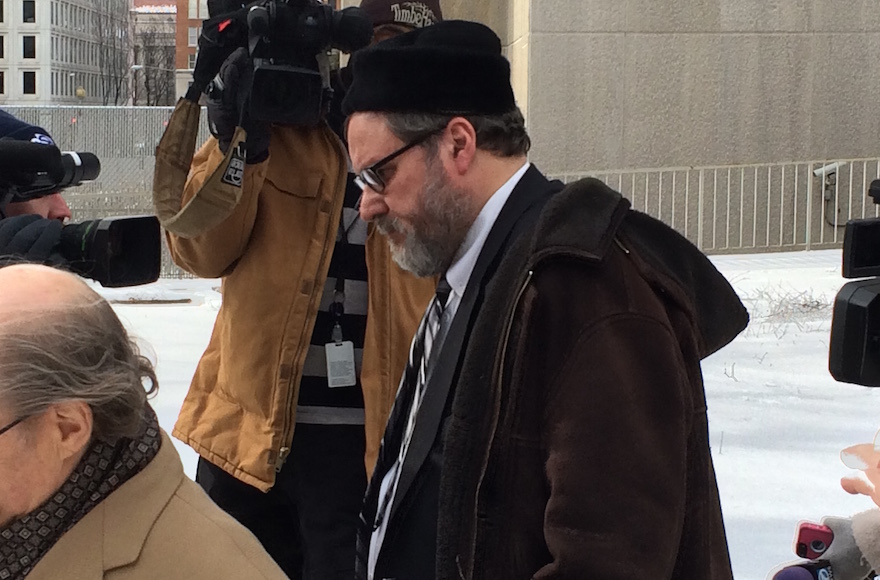Federal appeals court upholds Barry Freundel’s 6.5 year prison sentence
Published September 18, 2016

Rabbi Barry Freundel exiting the courthouse after entering his guilty plea, Feb. 19, 2015. (Dmitriy Shapiro/Washington Jewish Week)
(JTA) — A federal appeals court upheld the prison sentence of Rabbi Barry Freundel, a once-prominent modern Orthodox rabbi in Washington who secretly videotaped women in his synagogue’s mikvah.
Freundel, 64, who began serving his sentence in May 2015, had been sentenced to 6 1/2 years in prison after pleading guilty to 52 counts of voyeurism, a charge that carries up to a year in jail.
The sentencing judge had ordered Freundel to serve 45 days on each count, and ran the sentences one after the other. Freundel’s attorney had argued in the appeal that the sentences should have run concurrently, meaning Freundel would have served 45 days.
A three-judge panel of the District of Columbia Court of Appeals on Thursday upheld Freundel’s sentence in a unanimous 20-page ruling.
Before his arrest in 2014, Freundel was the longtime rabbi of Kesher Israel in the Georgetown section of Washington and an active member of the Rabbinical Council of America, an Orthodox rabbinic group.
Freundel is believed to have violated the privacy of at least 150 women he filmed while they undressed and showered at the mikvah, or ritual bath, including members of his Orthodox synagogue, candidates for conversion to Judaism and students at Towson University in Maryland, where Freundel taught classes on religion and ethics. The rabbi also secretly filmed a domestic violence abuse victim in a safe house he had set up for her.
Last September, shortly before the High Holidays, he issued a letter of apology.
“My preference would be to apologize individually to each person I have hurt,” Freundel wrote in his letter, which was first published in the Washington Jewish Week. “However, I recognize that reaching out to convey my regret could cause further harm to some and that such contact would be unwelcome. Therefore, I thought that the only solution would be to apologize publicly.”














